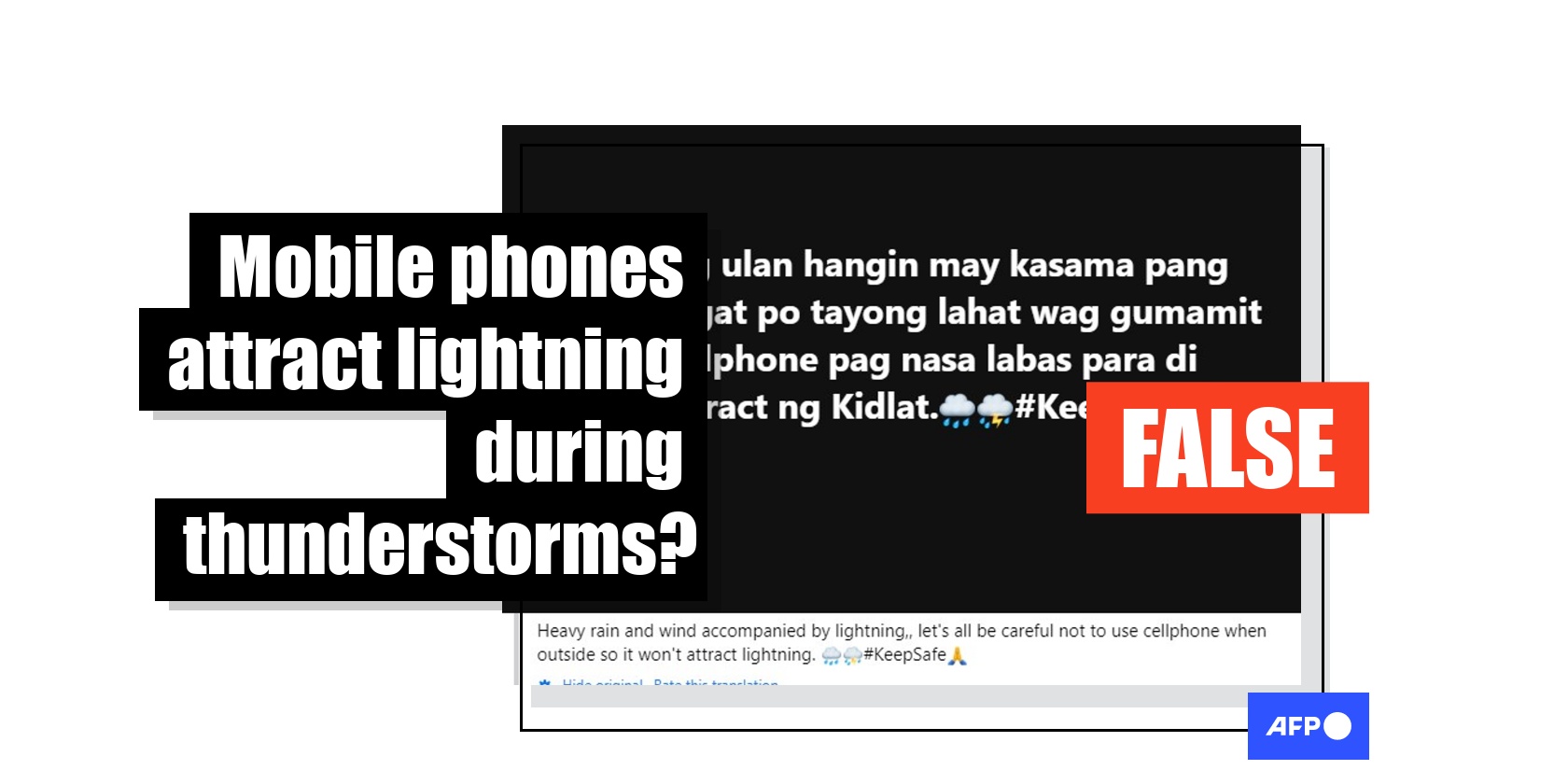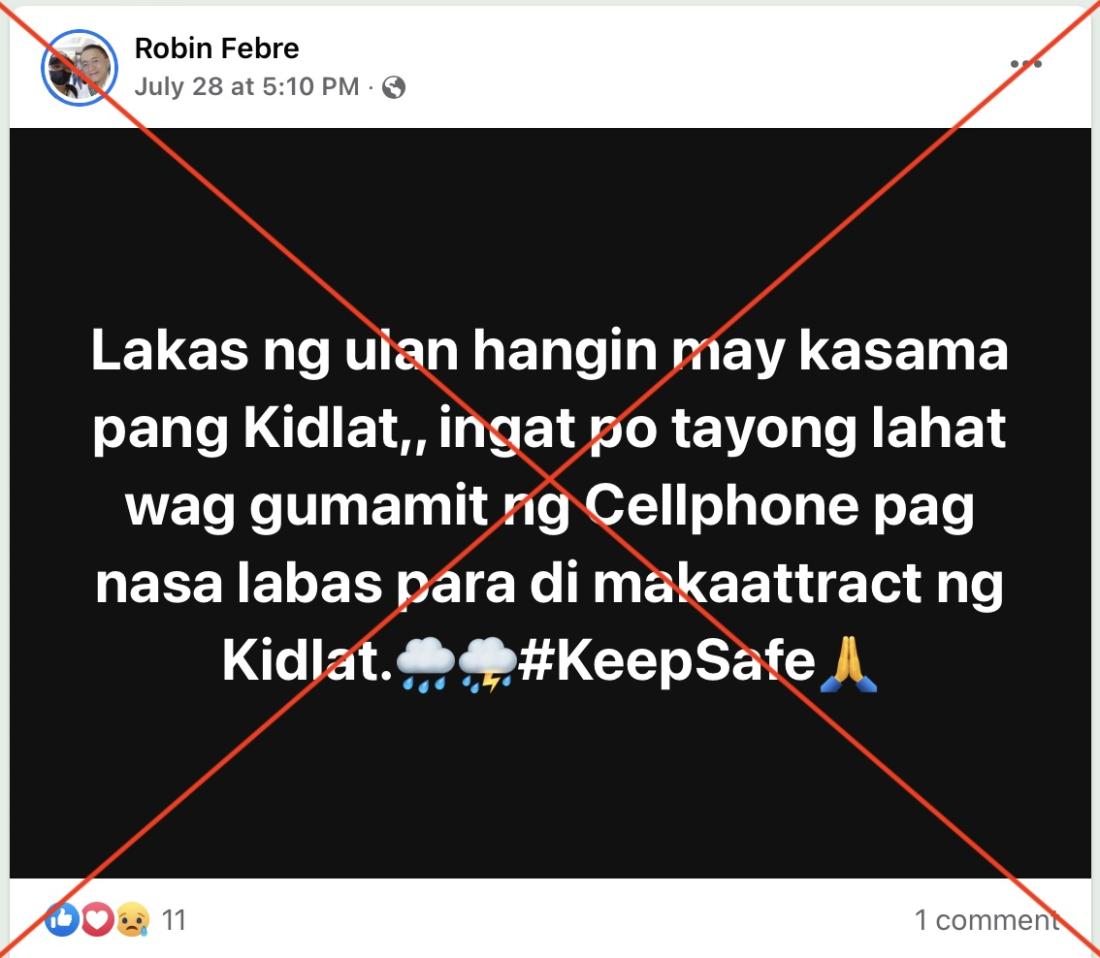
Experts dismiss claim 'mobile phones attract lightning' during thunderstorms
- This article is more than two years old.
- Published on August 21, 2023 at 14:06
- 2 min read
- By Faith BROWN, AFP Philippines
"The storm and winds are strong, along with the lightning," reads a Tagalog-language Facebook post shared in a group with more than 36,000 members.
"Let’s all be careful, do not use cell phones outside so it doesn't attract lightning."
The post was shared on July 28, shortly after the onslaught of Typhoon Doksuri, which killed six people as it battered the main island of Luzon in late-July, toppling trees, knocking out power and forcing the evacuation of thousands of people from coastal communities.

Similar Facebook posts surfaced here, here and here.
However, experts dismissed the claim and said lightning was not attracted to mobile phones.
Mobile phones 'generally safe' in a storm
Lightning happens when negative electrical charges at the bottom of thunderstorm clouds are attracted to positive ones in the ground, explained Marco Ibañez, an atmospheric research specialist at the Philippine government's Department of Science and Technology (archived link).
"The height and isolation of an object are the key factors for a lightning strike. Objects on the ground that are tall and isolated have the highest chance of getting hit by lightning," he told AFP on August 14.
Ibañez also said electromagnetic signals released by mobile phones do not draw lightning since it is attracted to solid objects.
But using corded telephones during thunderstorms may be risky as they are connected to solid, tall posts outdoors, he added.
David Callena, a licensed electronics and communications engineer said electrical charges travel along paths with the least distance, air and electrical resistance (archived link).
"In this case, mobile phones have nothing to offer in terms of lessening that resistance," he told AFP on August 16.
Joseph Placiente Jr, a researcher with the Ateneo Research on Optical Sciences, Engineering, and Systems Laboratory told AFP on August 16: "Since lightning and mobile phones are electrical in nature, people tend to relate the two. But mobile phones' electrical nature does not attract lightning" (archived link).
"It's generally safe to use mobile phones during thunderstorms. People however should avoid elevated or high places, which are more likely to attract lightning, regardless of whether or not they use mobile phones," he added.
The United States' National Weather Service has also dispelled a similar myth about mobile phones and other items containing metal attracting lightning -- the presence of metal in mobile phones "makes absolutely no difference on where lightning strikes" (archived link).
Copyright © AFP 2017-2026. Any commercial use of this content requires a subscription. Click here to find out more.
Is there content that you would like AFP to fact-check? Get in touch.
Contact us
